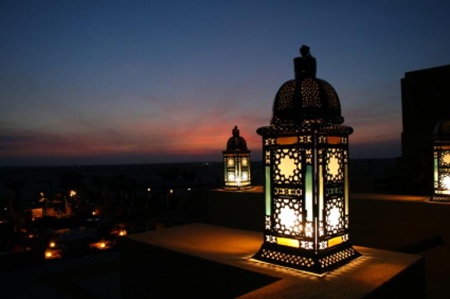
By Yasmein Mohammad Salim
Religion is a unified system of belief, values and practices. Hence, it sets the ground rules for what can/cannot be done by its followers. There are certain guidelines in Islam for Muslims to do good and avoid sins and heresy. These guidelines are from the Holy Quran and the sayings of the Prophet Mohammad (pbuh). One of the sayings (Hadith) of the Prophet Mohammad (pbuh) refers to the seven deadly sins in Islam.
The Prophet (pbuh) explained the seven sins that doom a person to Hell in a saheeh hadith that was narrated by the two Shaykhs, al-Bukhaari and Muslim, in as-Saheehayn, in which it was narrated that the Prophet (pbuh) said, "Avoid the seven sins that doom a person to Hell." We said, "What are they, O Messenger of Allah? He said, "Associating others with Allah (shirk); witchcraft; killing a soul whom Allah has forbidden us to kill, except in cases dictated by Islamic law; devouring orphans' wealth; consuming Riba; fleeing from the battlefield; and slandering chaste and innocent women."
- Shirk is ascribing partners with Allah, and is indeed the greatest of all sins. It is stated in the Noble Qur'an: "Allah forgives not that partners should be set up with Him, but He forgives anything else, to whom He pleases. To set up partners with Allah is to devise a sin most heinous indeed" (Qur'an 4:48).
- Committing witchcraft is also a kind of shirk, because it involves worshipping the jinn as well as seeking their help to misguide people. The black magic that is used harms people and creates illusions by the means of jinn. The Prophet (pbuh) warned about fortune-tellers and said, "Whoever goes to a fortune-teller and asks him about something, his prayers will not be accepted for forty days". [Sheeh Muslim]
- Murder or killing a soul whom Allah (swt) has forbidden us to kill is a great sin. Allah (swt) stats in the Noble Qur'an: "We ordained therein for them: "Life for life, eye for eye, nose for nose, ear for ear, tooth for tooth, and wounds, equal for equal." But if any one remits the retaliation by way of charity, it is an act of atonement for him. And if anyone fails to judge by (the light of) what Allah has revealed, they are (no better than) wrong-doers". (Qur'an 5:45)
- Devouring an Orphan's wealth is a not permissible as an orphan is weak and needs care, and a real believer must handle an orphan's wealth properly and develop it rather than waste it uselessly.
- Consuming Riba (Usury or interest) is as explained by the Oxford dictionary, the action or practice of lending money at unreasonably high rates of interest. This should not be mistaken with trading as "Allah has permitted trade and forbidden Riba" (Qur'an 2:275). Trading is permissible because it helps a poor man and any person who collects money and invests with it, but regarding Riba, the rich usually manipulate the poor and the poor end up becoming more miserable.
- Turning your back to your enemy and fleeing the battlefield is another sin. This is a sin as this act may affect the troops of believers and they may end up losing the battle and it is a form of treachery. "O you who believe, when you meet those who disbelieve marching to war, then turn not your backs to them. And whoever shall turn his back to them on that day- unless he turns aside for the sake of fighting or withdraws to a company then he, indeed, becomes deserving of Allah's wrath and his abode is hell; and an evil destination shall it be." (Qur'an 8:15-16)
- Lastly, slandering chaste women is by blaming and throwing false accusation on them. This also a sin if done against men. Allah (SWT) says: "Verily, those who accuse chaste women, who never even think of anything touching their chastity and are good believers - are cursed in this life and in the Hereafter, and for them will be a great torment" (Qur'an 24:23).
Specifying the seven deadly sins hence, is among the means of discipline people. Being virtuous and not committing any of these sins may be difficult and even impossible as we are all fallible human-beings and we are bound to make mistakes. Nevertheless, we should always strengthen our faith and pray for Allah (SWT) for His guidance to keep us away from sins, big and small as much as possible. May Allah (the Almighty) guide us all to the right path and keep us on it.
- Courtesy of the TIES Center: The TIES Center is the social and educational hub for English Speaking Muslims in Kuwait and aims at empower Kuwait's expats through social and educational services that promote a positive and productive role in society, and to facilitate opportunities for intra- and interfaith interactions that promote social solidarity. For more information, you can contact TIES at Tel:25231015/6; Hotline:94079777; e-mail: [email protected].










